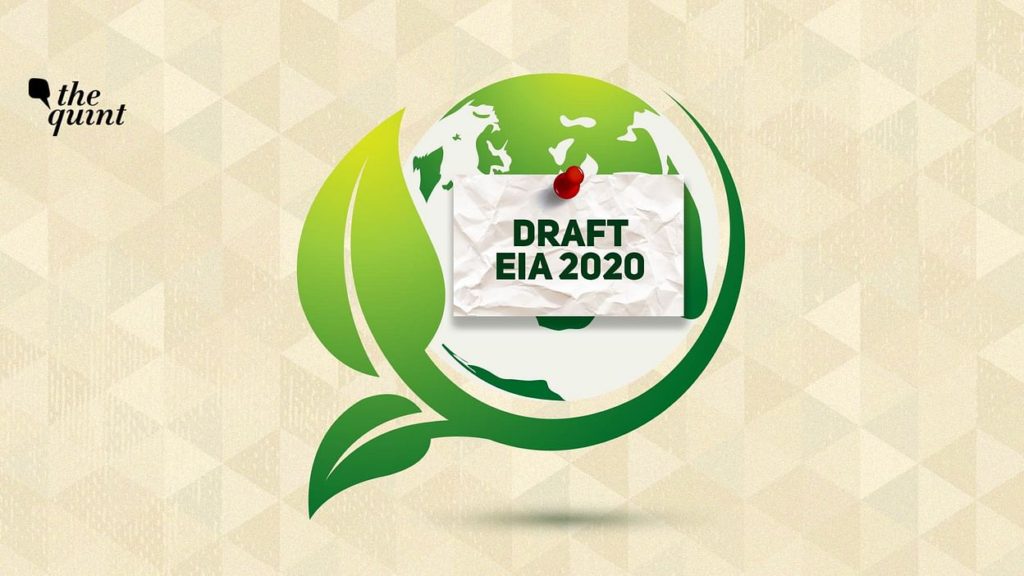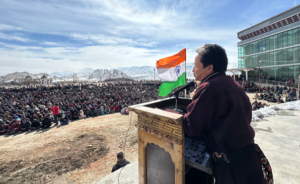Shine Jacob and Shreya Jai
Aug 12, 2020: The draft Environmental Impact Assessment (EIA) policy, facing opposition from many quarters, received a record 2 million comments as the deadline closed on Tuesday.
Though there have been several petitions for extending the deadline, government sources have denied an extension. National Environmental Engineering Research Institute (NEERI), which is controlled by the Centre, will compile and streamline the suggestions. Following this, the final draft will be placed before a committee headed by S R Wate — former director of NEERI — for scrutiny, during which experts from various sectors will participate, said a senior official.
According to the Environment Protection Act, the government now has 724 days to issue the final EIA.
The draft EIA notification 2020, proposed by the Ministry of Environment, Forest and Climate Change (MoEFCC) in March, will replace the last notification dating back to 2006.
EIA is the process of evaluating the environmental impact of a proposed project. “EIA 2020 is an effort to create a monitoring mechanism,” said an official close to the development.
The draft EIA has been facing protests from leading environment groups, public policy organisations, educational institutes, and the Opposition. Most of them have, in their submissions, contested the terms of the EIA, calling it anti-public and pro-industry. Several agencies have also objected on the process of EIA drafting. Kanchi Kohli, senior researcher with the Centre for Policy Research, said the government has disregarded popular sentiment by asking its own agency to vet the suggestions.
“Most of the comments in the draft EIA are with regards to an overhauling of the process of making amendments to the EIA. The government should initiate a whole new process to review the EIA rather than dilute the tenets of the same further,” said Kohli.
Several agencies have questioned the timing too, given that a lot of stakeholders — especially those in mining and industrial zones, as well as river and forest areas — were left behind in the consultation process. Some have also raised concerns over the draft not being issued in vernacular languages.
Among major concerns raised by several players, the most prominent has been the exclusion of public hearing in several key projects under the B2 category. The B2 category includes ambitious inland waterways projects, offshore as well as onshore oil, gas, and shale exploration projects, small hydroelectric projects up to 25 Mw, and irrigation projects between 2,000 and 10,000 hectares of command area.
A government official, however, said exclusion in oil, gas, and shale was only for the exploration stage and not for the commercial/developmental stage. Another major criticism the draft has faced is that it proposes post-facto environment clearance for projects by paying a penalty. The MoEFCC also courted controversy by banning websites of several non-government organisations (NGOs) that had sent mass emails to the minister. The ban was later revoked.
One of them, ‘Let India Breathe’, restarted the mass polling against the draft EIA and received more than 200,000 submissions, which were later shared with the ministry. “The comments we have received on our site are from across the country; there is no district from where we have not received comments. All of them reflect concern. However, most of them are urban. The government should get on-ground feedback from affected regions as they are the real stakeholders. We sent out letters to the MPs today. Thankfully, a lot of them have shown some concern,” said Yash Marwah, founder of Let India Breathe, on Tuesday.
Several political leaders, such as Jairam Ramesh of the Congress and Aditya Thackrey of Shiv Sena, have asked the Centre to relook the draft EIA and consider the objections made against it.
“The notification, in its present form, fails to align with the Paris agreement and poses a threat to our goal of achieving sustainable growth,” said Thackrey in his three-page note to the MoEFCC.
(Courtesy: Business Standard.)




